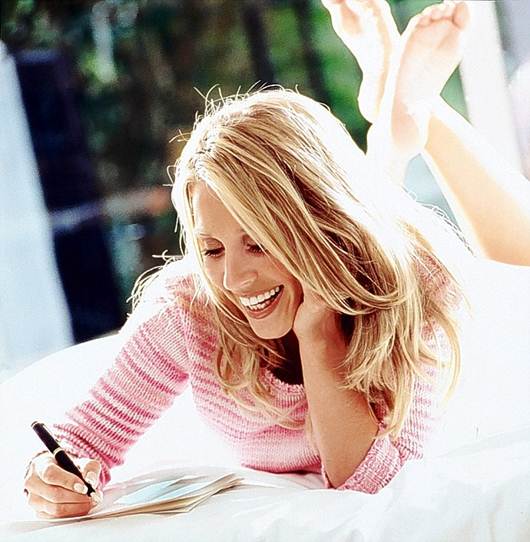What’s your story?
A final reflection that you may want to
incorporate into the morning practice is mindfulness of your story. In fact,
because of your unique history, you have evolved a series of stories that you
repeatedly return to throughout your life. These stories determine how you see
yourself and how you interpret what is happening to you.

Your stories can be so powerful that your
life becomes a reenactment of them. You may be over-identified with your stories
and not see that they represent only one view of your circumstances. The
morning practice helps you recognize your stories and see the suffering they
cause you. Your fresh mind can see them for what they are – just stories – and
can watch them come into play in anticipation of your day. I’m not suggesting
that you get rid of your stories but rather that you begin to recognize them as
merely thoughts stemming from memories, associations interpretations, and
projections that you’ve strung together. Any given story might be true, might
have practical implications, and may come from a genuine feeling of suffering,
betrayal, or failure, but you do not have to be defined by that story, it is
one of many things arising in your mind, and it is just something that
characterizes the moment. If you pay attention to the story and don’t cling to
it, the amount of distress it causes you will be dramatically reduced.
No matter how good your life circumstances
are, you are affected by your stories. You may not even recognize them as
stories; to you, they may seem like worries or just the way you are. If this is
the case, my advice is to be more curious and to look more closely. We all have
stories about how the world is, how love works, what’s possible in a relationship,
what it means to raise a child, and so on. We even have stories of an
archetypal nature, meaning stories in the collective unconscious that we share
as humans. Your stories can limit what you believe to be your choices and
define what happens to you in your day. As you gain clarity about your choices
and what truly matters to you.
The simple practice of starting your day
with clarity creates the momentum for you to connect the disparate events of
your day into an integrated whole based on your intentions. Imagine the effect
of a steady daily practice over weeks, months, or years. What new possibilities
might open up for you if you indeed awaken each day with clarity? Isn’t it at
least worth a sustained effort to find out?
The love inside
Tap into your most intuitive,
intentional self with this seven-step reflection.

You can enhance the practice of starting
your day with clarity by cultivating an attitude that focuses on your effort
rather than on the results. I call it an “as best I’m able” practice. The goal
is to align your values with your words and actions throughout the day.

1.
Ask yourself if
you truly want to make this practice a core attitude in your daily life and, if
so, what it means to you.
2.
Engage in this
practice each morning by stating to yourself, “I intend to treat each part of
this day as an offering by living it as best I’m able.”
3.
Throughout the day practice being mindful of your attitude as you go about your
various activities.
4.
Remind yourself
throughout the day that you intend for all your words and actions to arise from
an attitude of “as best I’m able.”
5.
Notice when your
attitude is one of judging yourself for not doing your best, and consciously
remind yourself, “Even in these circumstances, I wish to do the best I’m able.”
6.
Be mindful of
those times when you actually speak or act from this attitude, and acknowledge
to yourself that you have lived out your commitment.
7.
When others demand that you meet their expectations, respond by saying that you are
doing the best you are able to do. However, beware of making a false claim, and
don’t fall into the trap of using hindsight to redefine your best effort.